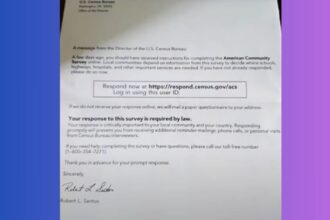Across the country, job seekers have been receiving text messages claiming to offer online part-time work with Conill Advertising and Media. However, the renowned marketing agency has confirmed it is not contacting potential hires in this manner. The texts are part of an elaborate scam impersonating Conill to gather personal information and take advantage of vulnerable unemployment.
How the Conill Advertising and Media Part Time Job Scam Spreads
The suspicious texts follow nearly identical wording, stating: “Hi, my name is [fake recruiter name] and I am a Recruiter at Conill Advertising & Media. Our company is looking for online part-time employees…” before claiming the certification is free and the role flexible. It then asks if the recipient wants job details sent.
The messages come with no clear pattern from a variety of phone numbers such as, 386-530-3418, 608-607-8065, 817-725-8684, 646-776-3028 and so on. What gives them away as fraudulent is the ever-changing recruiter name – Jennifer Harrell, Kayla John, Sarah Richardson – likely AI-generated. Conill has only 50-200 real employees.
So far there have been no reports of people actually being hired or completing a certification. The scam’s purpose appears to be phishing for personal data or spreading malware through infected links.
Conill’s LinkedIn Warning About the Unsolicited Text messages
After being alerted to the text spam, Conill Advertising posted a LinkedIn notice confirming their company is being impersonated. Conill states they “will never ask for sensitive information prior to engaging candidates” or “initiate contact via text message.”
Instead, legitimate communication would come from an @conill.com email address or Conill’s official LinkedIn account. This aligns with standard company recruitment practices.
Conill apologized for the nuisance texts and asked recipients not to provide the scammers any personal or financial details if contacted. Their post received an outpour of thanks from those who avoided being duped.
What To Do If You Get the Text
The Federal Trade Commission offers clear advice should someone receive an unsolicited and questionable job offer via text or email. First, verify it is a real opening by contacting the company directly through their official channels, not any info provided.
Search online to see if other complaints have been filed about the recruiter name or phone number. Check sites like the Better Business Bureau and Ripoff Report.
If the offer asks you to pay for training or certification as part of the application process, that is another red flag of a scam. No legitimate employer would expect potential hires to pay upfront.
To best protect yourself, do not click any links, provide sensitive information, or download anything the text instructs without confirming authenticity. Report fake job listings to the FTC.
How To Spot Job Scams Like Fake Conill Advertising & Media
While the Conill impersonation is more complex, many employment scams still follow familiar patterns according to the FTC:
- Requests personal information like bank accounts or SSN right away
- Vague descriptions using common titles like “customer service rep”
- Claims you can earn thousands a week for minimal work
- Poor grammar/spelling or text wholly copied from other sites
- Interviews scheduled via text/messaging apps instead of by email/phone
When in doubt, directly call the company listed as hiring before submitting applications or personal details to confirm legitimacy.
What To Do If You Shared Information
If you provided any sensitive information or downloaded files from what turned out to be a fraudulent job listing, take action immediately.
First change any compromised passwords, freeze credit reports to block theft, inform your bank of potential fraud, scan devices for malware, and monitor account activity vigilantly.
You should also report the scam to the FTC so they can open an investigation and work to shut it down. Provide all details including phone numbers, recruiter names, screenshots of messages, and file hashes.
Cooperate fully if law enforcement gets involved. Alongside prosecuting scammers, officials try helping victims recover losses and restore identities. Consider an identity protection service as well.
While phantom job listings prey on vulnerable times, awareness of common tactics along with caution when sharing personal data can help job seekers guard against employment scams impersonating trusted brands.


























